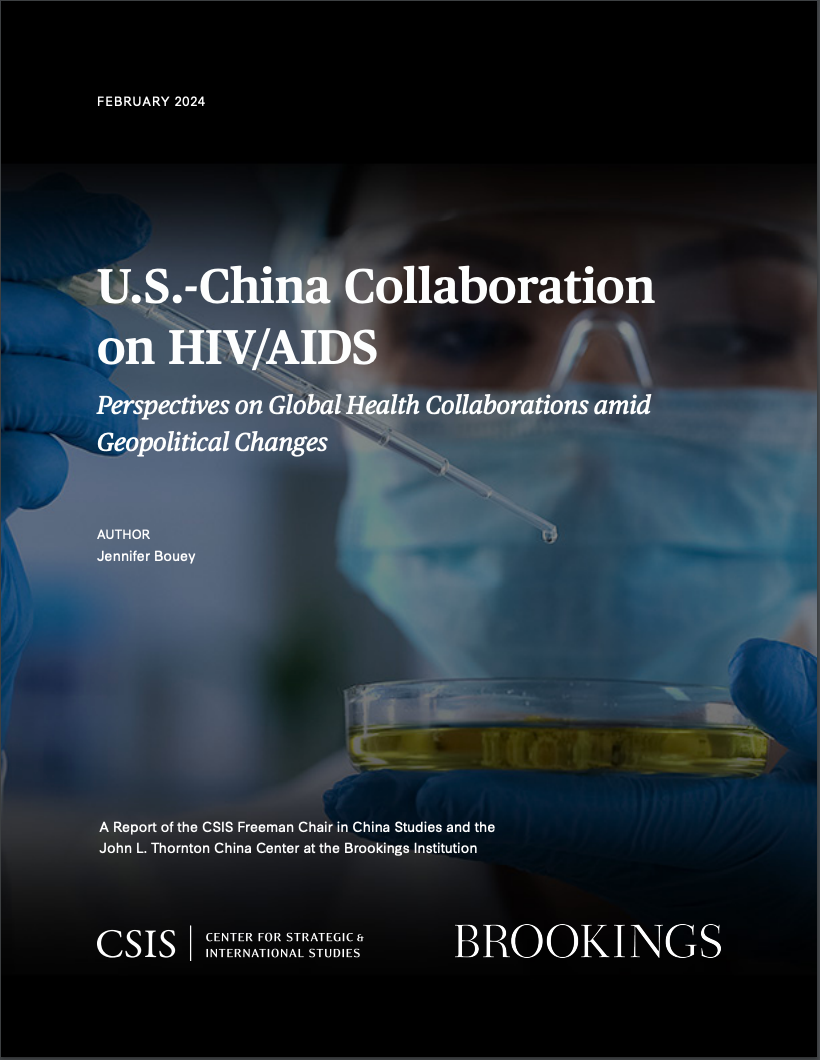Bouey Publishes New Report on U.S.-China Collaboration on HIV/AIDS

(February 26, 2024) — A new report “U.S.-China Collaboration on HIV/AIDS: Perspectives on Global Health Collaborations amid Geopolitical Changes,” written by Jennifer Bouey, MD, PhD, examines the successful collaboration between the U.S. and China in combating HIV/AIDS from 2002 to 2018 and underscores the recent challenges in maintaining such partnerships. Bouey is an associate professor and chair of the global health department at Georgetown’s School of Health.

The United States and China, despite profound ideological and governance differences, have historically found common ground in addressing global health challenges. Since the People’s Republic of China’s establishment in 1949, the Chinese-American relationship has been marked by instability, especially in military, political, economic, and cultural domains. However, public health emerged as a consistent area of collaboration, notably during crises like HIV/AIDS, avian flu, swine flu, and the Ebola outbreak from 2014 to 2016.
The collaborative efforts in addressing HIV/AIDS not only averted a “ticking bomb” crisis that was initially denied by the Chinese government but also provided treatment to over a million patients, showcasing the potential for global benefits and positive impacts on the U.S.-China relationship. U.S.-based scientists and public health agencies also benefited from participating in and accessing the large scale implementation studies on HIV prevention among high-risk populations in China.
This cooperative spirit faced a significant setback during the Covid-19 pandemic, characterized by mutual accusations and mistrust, highlighting the intricate interplay of geopolitics in global health emergencies.
“This analysis explores the synergistic advantages of a U.S.-China alliance, evaluates the political milieu that supported this joint effort, and concludes with strategic policy recommendations for future bilateral cooperative endeavors in global health,” said Bouey.
The report was published February 23, 2024 by the Center for Strategic and International Study.
